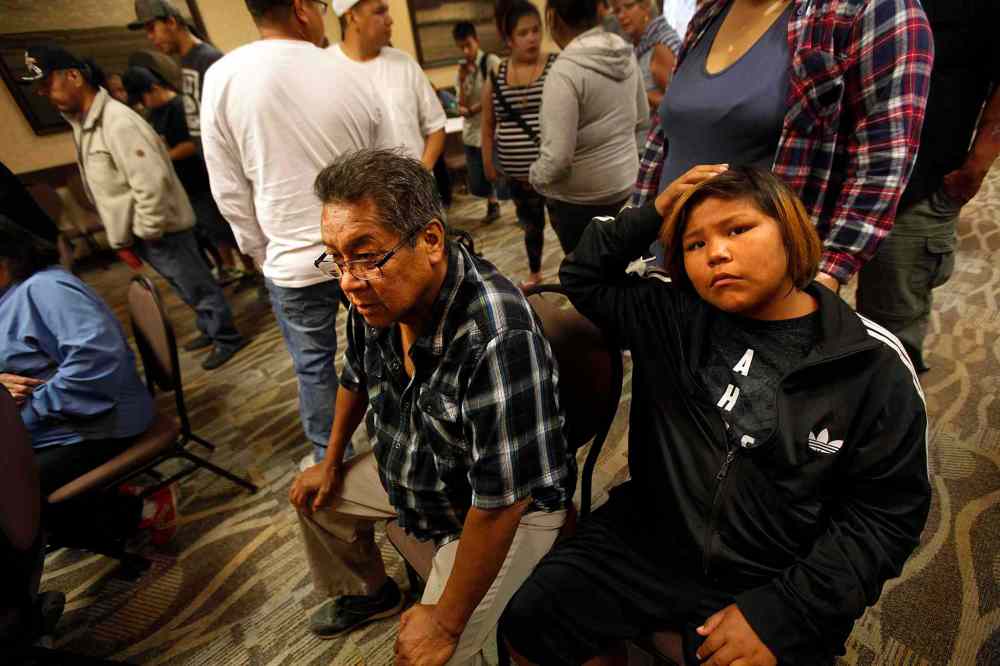Military called in to help with northern Manitoba wildfire evacuation
Advertisement
Read this article for free:
or
Already have an account? Log in here »
To continue reading, please subscribe:
Monthly Digital Subscription
$0 for the first 4 weeks*
- Enjoy unlimited reading on winnipegfreepress.com
- Read the E-Edition, our digital replica newspaper
- Access News Break, our award-winning app
- Play interactive puzzles
*No charge for 4 weeks then price increases to the regular rate of $19.00 plus GST every four weeks. Offer available to new and qualified returning subscribers only. Cancel any time.
Monthly Digital Subscription
$4.75/week*
- Enjoy unlimited reading on winnipegfreepress.com
- Read the E-Edition, our digital replica newspaper
- Access News Break, our award-winning app
- Play interactive puzzles
*Billed as $19 plus GST every four weeks. Cancel any time.
To continue reading, please subscribe:
Add Free Press access to your Brandon Sun subscription for only an additional
$1 for the first 4 weeks*
*Your next subscription payment will increase by $1.00 and you will be charged $16.99 plus GST for four weeks. After four weeks, your payment will increase to $23.99 plus GST every four weeks.
Read unlimited articles for free today:
or
Already have an account? Log in here »
Hey there, time traveller!
This article was published 30/08/2017 (3018 days ago), so information in it may no longer be current.
The Canadian Armed Forces is getting involved in the airlift of thousands of people forced to flee their homes by forest fires in Northern Manitoba.
the Department of National Defence will send military planes to help the evacuation efforts in Wasagamack First Nation, the department said in an e-mailed statement to the Free Press Wednesday night.
“Our air personnel, soldiers and sailors stand ready to assist and serve fellow Canadians who face uncertainty and distress from natural disasters,” the statement said.The statement did not specify when the planes would be heading north.
Exhausted northerners landed in airports in Winnipeg and Brandon on Wednesday during evacuations of about 3,700 residents from three northern First Nations threatened by the raging wildfire.
In Winnipeg, hotels like the Canad Inns at Polo Park took in dozens of elderly people and those with chronic health problems. They lined up quietly as Canadian Red Cross volunteers registered their families for aid and accommodation while hotel staff guarded luggage racks loaded with small overnight bags.
The Department of Indigenous and Northern Affairs was “working to establish a shelter in Winnipeg for evacuees of the wildfires.”That emergency shelter is going to be located at the RBC Convention Centre, officials said.
“We’re in the middle of planning right now, but yes, we will be an emergency shelter,” Klaus Lahr, CEO of the RBC Convention Centre, told the Free Press Wednesday night. “We’re anticipating to have between 1,500 and 1,800 cots set up to accommodate evacuees on the third floor of the exhibition hall.”
“Tired,” is how Lloyd Little described his ordeal. He and his wife, Margaret Little, were among the first 50 medical evacuees to arrive in Winnipeg from Garden Hill on Wednesday afternoon.
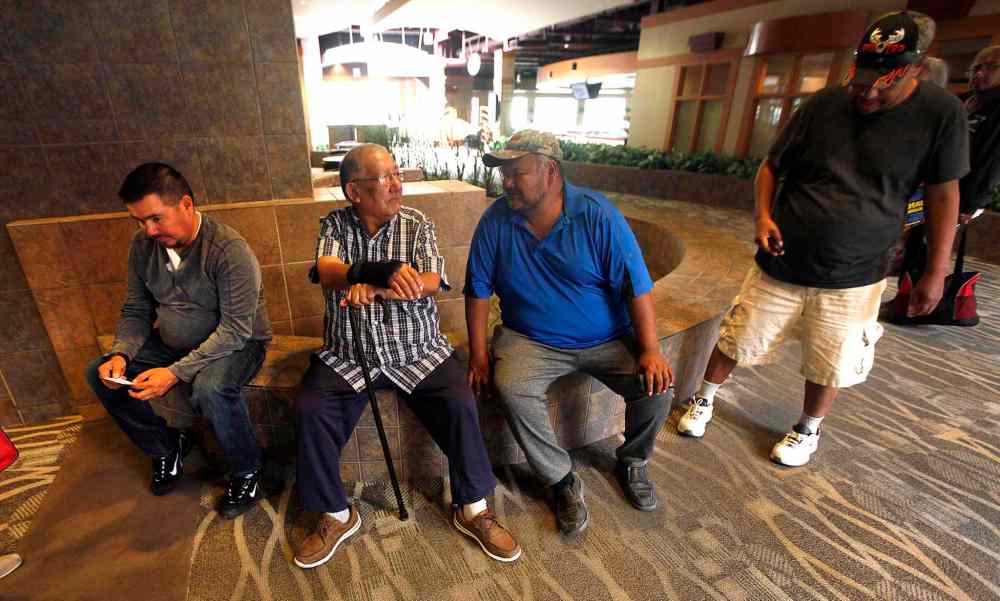
“Our trip wasn’t until 3 o’clock this morning and we’d been waiting at the airport since 5 (on Tuesday afternoon),” Little said. Winds coming from the northwest blew soot and debris from the fire into the northern First Nation and held up flights Tuesday, forcing a crowd of about 250 at Garden Hill to wait until the wee hours of the morning to lift off.
“That wasn’t human,” joked Little. ” I mean it wasn’t caused by people. That was the fire.”
“These are all priority one people, about 50 people,” said Garden Hill Chief Dino Flett, who flew in with the first arrivals. “They haven’t eaten, most got maybe three hours of sleep last night and when you’re talking about priority one people, you’re talking about people who are not well. They have heart conditions, diabetes, asthma,” he said, looking as tired as everyone else.
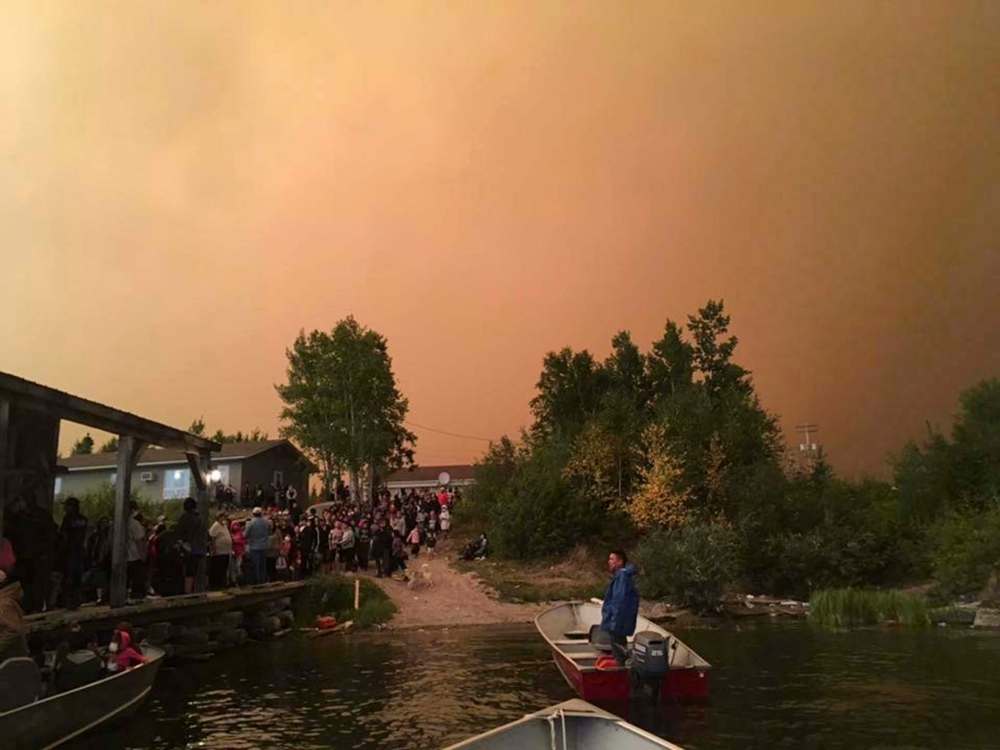
“The rest will go to Brandon,” the chief said.
The evacuation began Tuesday night as winds pushed a 15,000-hectare fire near Wasagamack First Nation in northeastern Manitoba.
People with health concerns and their caregivers are also being evacuated from Garden Hill and St. Theresa Point — about 850 from each of the two communities. The three First Nations are clustered close to each other in the Island Lake area, about 600 kilometres northeast of Winnipeg.
Hundreds of people crowded into small airports at Garden Hill and St. Theresa Point, awaiting flights out of the remote region. About 2,000 evacuees from the neighbouring Wasagamack First Nation were making harrowing journeys to St. Theresa Point on the water through walls of smoke, as the wildfire approached.
After being transported across the water, Wasagamack residents are being housed in places such as gymnasiums until they can be flown out.
By Wednesday afternoon, there were unconfirmed reports that 28 homes were in the path of the fire at Wasagamack.
Estimated fire perimeter
Source: Natural Resources Canada, Canadian Wildland Fire Information System
“It was about 15 miles north of Garden Hill but it was right at Wasagamack,” said Lloyd Little. Even that distance didn’t seem far enough for the crowds who watched soot rain down on them.
“In the afternoon the smoke was kind of thick, there was soot and debris coming down and the ground was black with it,” Little said.
“All the soot and pine needles,” his wife Margaret added, describing pine needles raining down over the Garden Hill.
“At least we weren’t getting pine cones. Those things pop. They start fires,” Lloyd said.
The Canadian Red Cross issued a nation-wide call for charter planes to airlift the evacuees, spokesman Shawn Feely said at an afternoon news briefing Wednesday. Some 50 private charter airlines have pledged planes from across Canada to help with the airlift. Most of the first flights were coming in from the north’s main carrier, Perimeter Airlines.
Wasagamack residents were taken by boats to St. Theresa Point, where flights organized by the Red Cross are taking them to southern Manitoba.
Every available hotel room from Brandon to Winnipeg to Thompson is being considered for the rescue effort, but with 835 evacuees already in Winnipeg from a similar wildfire evacuation last week involving Poplar River, the Red Cross expects it will run out of hotel rooms before all the evacuees have been accommodated.
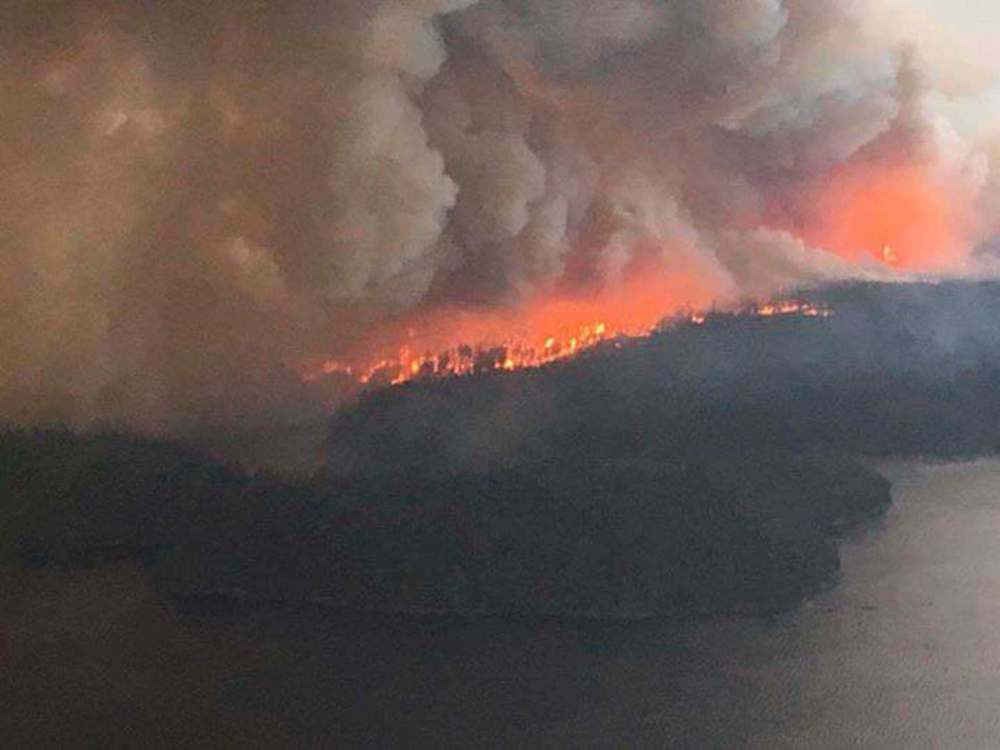
Feely said the Red Cross is making preparations for a massive shelter, like the kind used this summer to accommodate evacuees from the British Columbia wildfires, to be located in Winnipeg. Some 2,000 cots, blankets and hygiene kits are ready to go, he said.
With two airstrips running full-time in St. Theresa Point and Garden Hill, it will still take days to get everyone airlifted to safety.
Liberal MLA Judy Klassen, who represents the area, said the forest fire was “nothing worrisome” and a safe distance from Wasagamack Tuesday morning. “Then, within an hour, it was right at the community’s doorstep due to a change in wind,” she said.
Klassen said it was dangerous transporting people across the lake, with many of the rescue boats not having proper lighting.
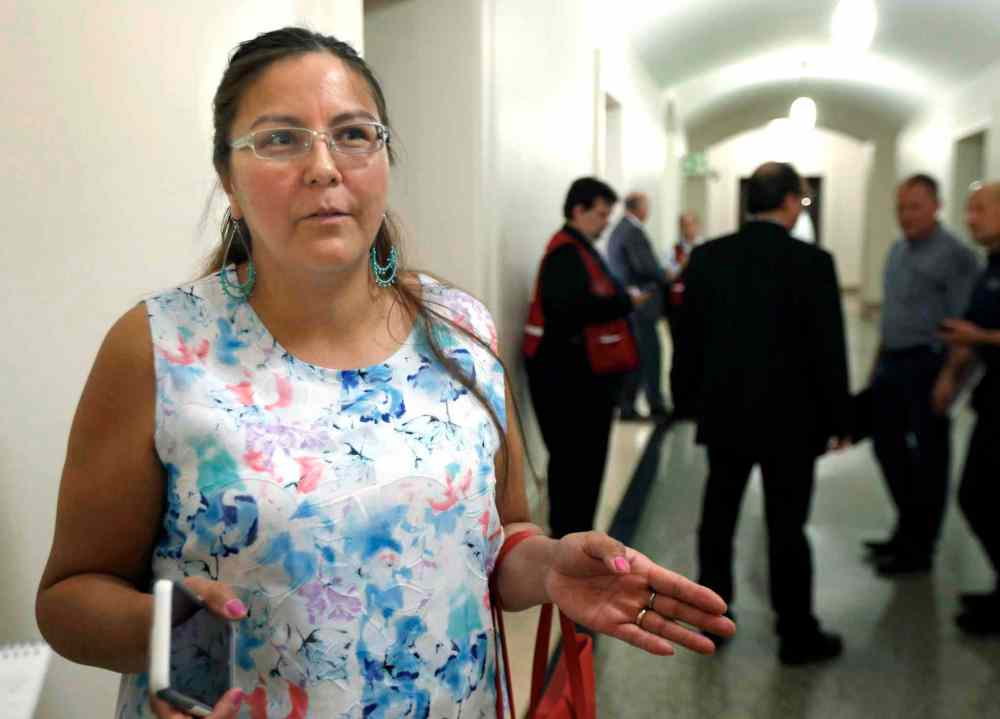
Klassen, who lost her own home to a wildfire about 20 years ago. said there was standing room only in a gym in St. Theresa Point, her home reserve, after flights stopped Tuesday night.
“I’m worried that the fire, that the winds will change. It happens so fast,” she said.
Red Cross disaster aid to First Nations is supported by the federal government. Anyone who wants to donate to help the humanitarian organization prepare for future disasters can go online to www.redcross.ca or call 1-800-418-1111.
bill.redekop@freepress.mb.ca
alexandra.paul@freepress.mb.ca
History
Updated on Wednesday, August 30, 2017 8:15 AM CDT: Adds photo
Updated on Wednesday, August 30, 2017 10:07 AM CDT: Updated
Updated on Wednesday, August 30, 2017 12:57 PM CDT: Adds fire GIF
Updated on Wednesday, August 30, 2017 7:49 PM CDT: Updates
Updated on Wednesday, August 30, 2017 7:51 PM CDT: Updates headline


